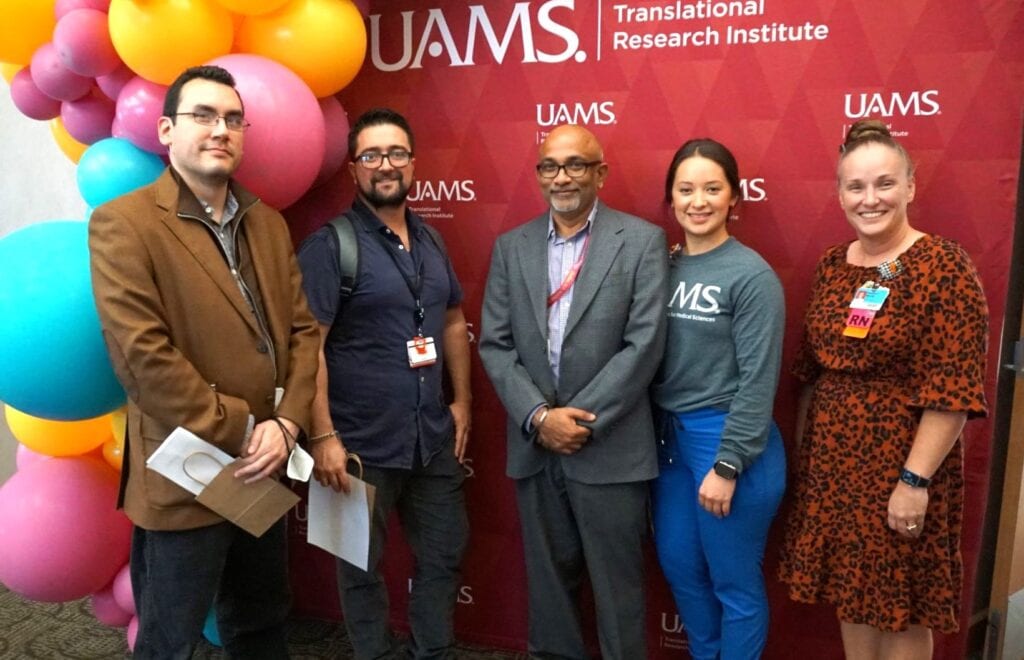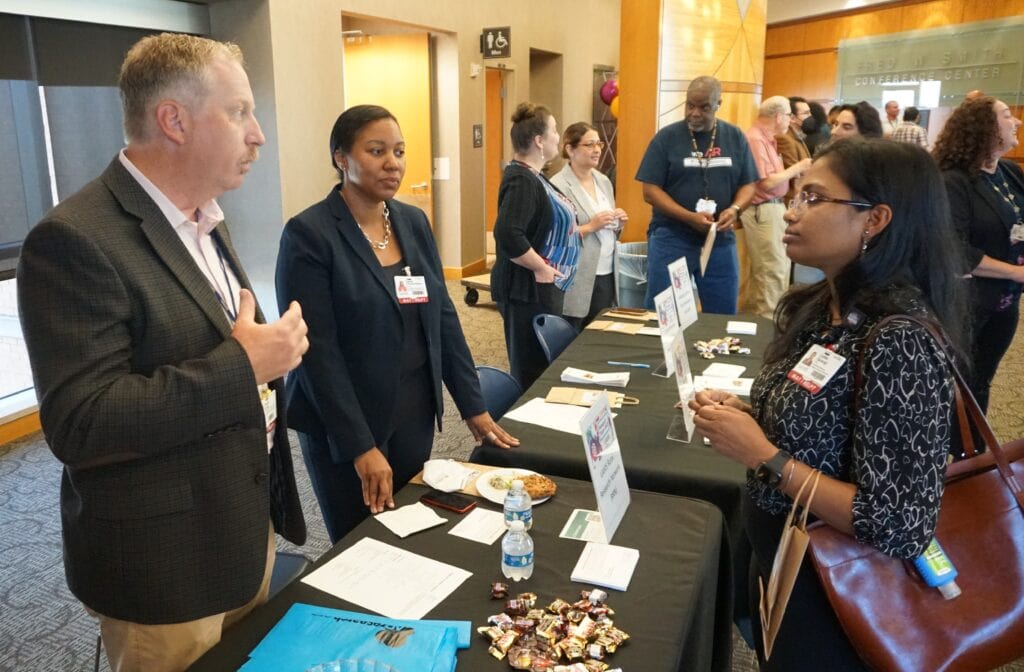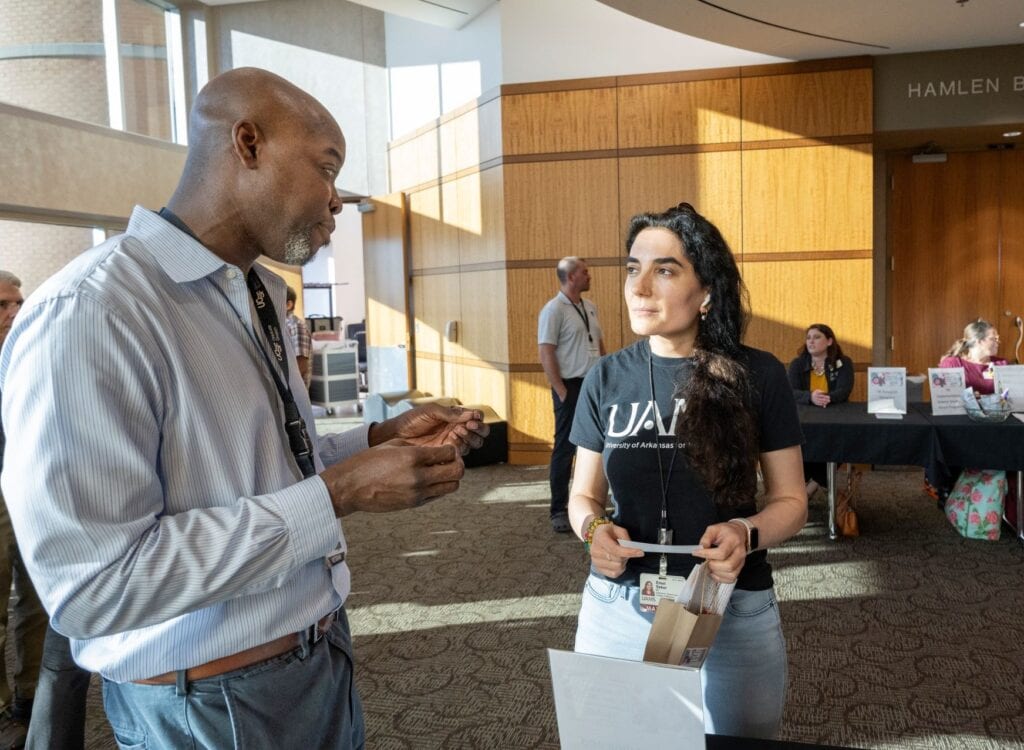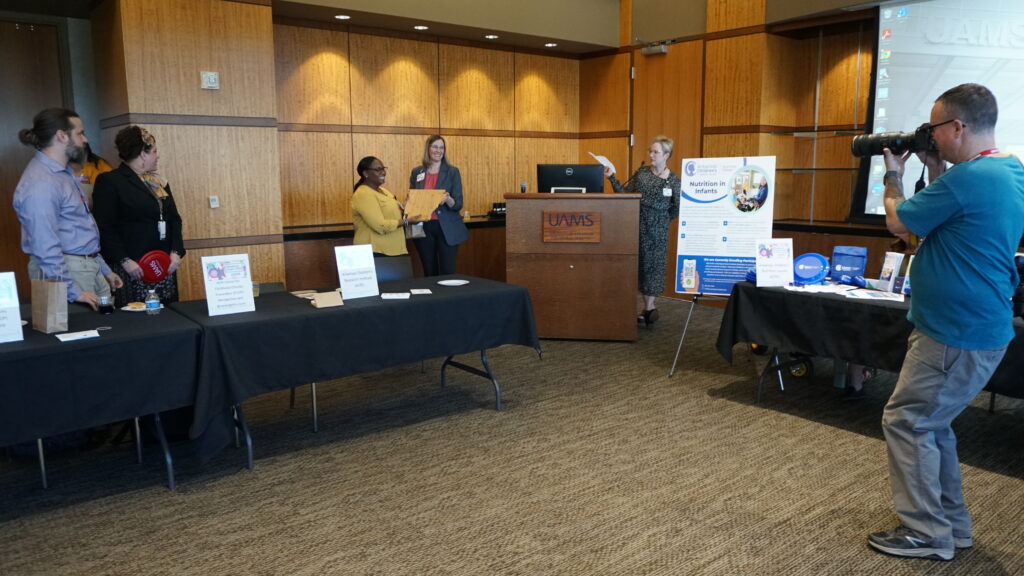Alberto Ramirez, Ph.D., was excited to attend Research Expo 2023, with its 50 research services and resources on display.
“As an early-career researcher, the event proved to be remarkably valuable as it allowed me to gain insight into the numerous resources offered by UAMS, including TRI, Research & Innovation, and more, which have the potential to greatly support my nascent research journey,” said Ramirez, a postdoctoral fellow in the College of Medicine Department of Obstetrics and Gynecology.

Sponsored by the Translational Research Institute (TRI), the Oct. 11 event at the UAMS Jackson T. Stephens Spine & Neurosciences Institute building drew 114 attendees who got to visit with leaders of all the key research services at UAMS, Arkansas Children’s Research Institute (ACRI) and Central Arkansas Veterans Healthcare System (CAVHS).

“This expo is great for new faculty members like me who are conducting research,” said Lipika Sarangi, Ph.D., an assistant professor in the College of Health Professions Department of Audiology & Speech Pathology. “It’s wonderful to have an event where you can meet new people, build your network, and find exactly the information that might be useful for your research today or in the future.”
For example, she was able to learn how to access potential research volunteers in the ARresearch database established by TRI. The database includes more than 9,000 Arkansans who have agreed to be contacted for research studies.

“They told me the process, and I will definitely use ARresearch in the future,” she said. “The resources I have found here will be very helpful for participant recruitment, grant writing and manuscript writing. I am looking forward to using these resources for my independent and collaborative research.”
Emel Seker, M.S., an applications system analyst in the College of Medicine, said the expo provided a unique opportunity to discover cutting-edge resources and connect with individuals who share a passion for research.
“The expo was an invaluable experience for me, underscoring the significance of collaborative platforms in research,” Seker said. “I was particularly impressed by the number of representatives from various research services. Meeting like-minded professionals who are not only knowledgeable but also open to collaboration was a highlight. I believe these connections have the potential to lead to meaningful collaborations in the future.”
Ramirez said he was particularly interested in the opportunities available to assist with the grant-writing process and the potential benefits of the TRI Community Engagement Program. “I am definitely planning to establish connections with these resources.”
In addition, he said, “the event emphasized the importance of networking, facilitating connections among all the stakeholders involved in the research process, from the initial spark of an

idea in the researcher’s mind to the practical implementation of results, all aimed at making a positive impact on the community.”
TRI is supported by the National Center for Advancing Translational Sciences at the National Institutes of Health, Clinical and Translational Science Award number UL1 TR003107.
